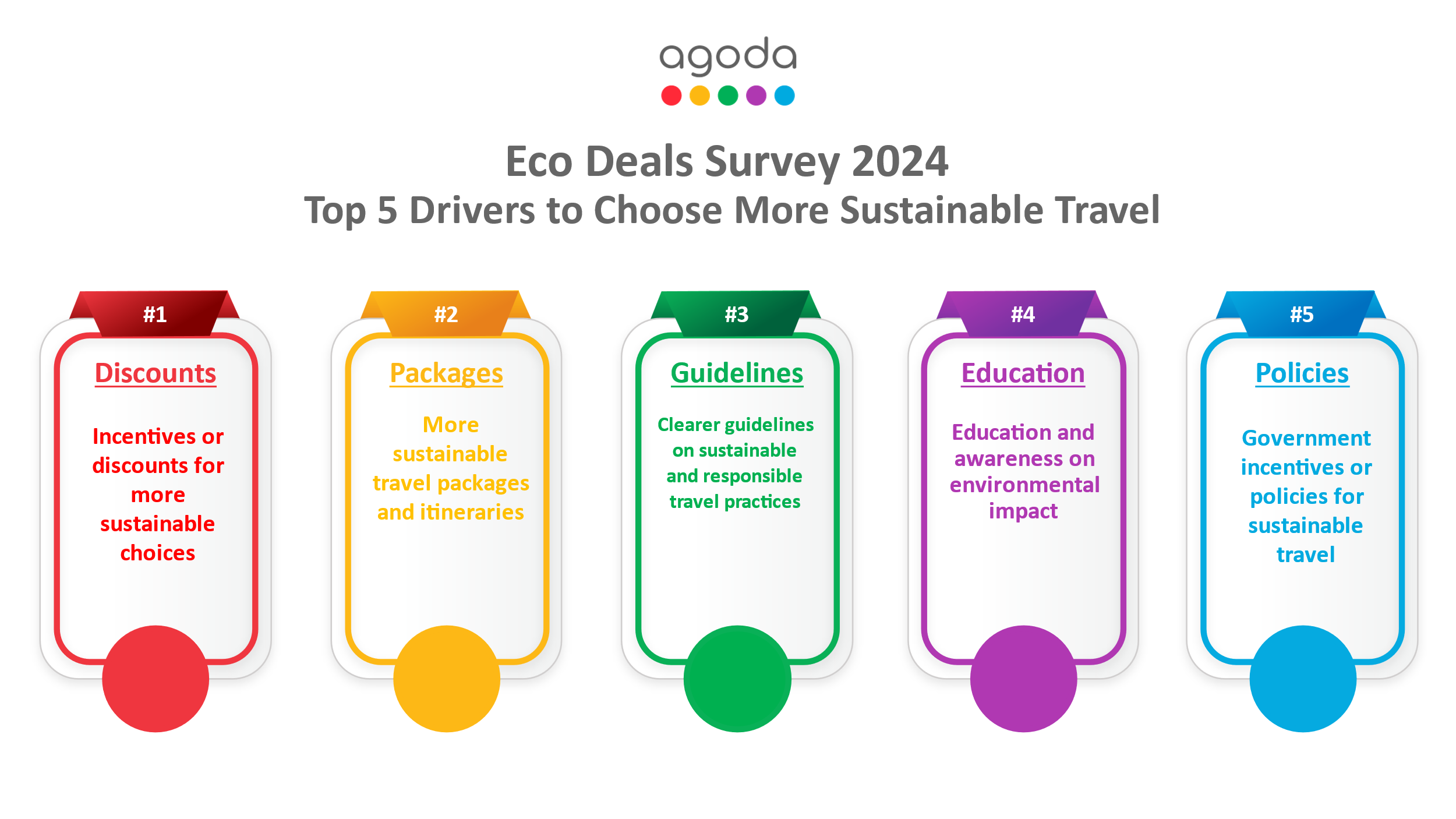
87% of Indians Care About Sustainable Travel

As Indians venture to explore new horizons, they are increasingly mindful of the potential impact of their choices. According to a survey conducted by digital travel platform Agoda, 87% of Indian travelers care about more sustainable travel. Respondents highlighted that financial incentives, the availability of sustainable travel packages and clearer guidance on sustainable travel practices could encourage them to make more sustainable choices on their next trip.
Over ten thousand respondents were polled on Agoda’s platform, from ten markets across Asia. Almost 8 in 10 travelers stating their willingness to make more sustainable travel choices: with 18% of respondents indicating that they would always make every effort to ensure they travel more sustainably. Still 22% of travelers rarely consider sustainability in their travel decisions – with Japan’s travelers least concerned (45%) versus only 8% of travelers from the Philippines.
Financial incentives could play a key factor in making more sustainable choices
Agoda’s Eco Deals Survey also asked respondents for the key factors that could help encourage them to make more sustainable travel choices. In all markets, financial incentives came out on top, with an average of 45% of respondents highlighting incentives like discounts as the key factor. This sentiment was particularly strong in Singapore (58%), Taiwan (54%) and Indonesia (47%). 41% of Indian travelers opted for incentives or discounts as a core driver.
The availability of sustainable travel packages ranked second, with offerings ranging from guided conservation hikes to supporting local initiatives of more interest to travelers from the Philippines (28%), Vietnam (24%) and Thailand (23%). Clear guidelines on sustainable travel practices (#3), education and awareness on environmental impact (#4), and relevant sustainability policies from the local government (#5) completed the top five.
Enric Casals, Associate Vice President at Agoda, said “The message is loud and clear: Travelers want to make more sustainable choices. Agoda’s Eco Deals Program offers travelers a range of great value deals on selected properties, and for every booking, Agoda donates one US dollar to local conservation projects of World Wild Fund for Nature (WWF). With a total donation target of up to one million US dollars, we are helping travelers to see the world for less, and do their part to give back to the destinations they care about.”
When asked which sustainable travel practices travelers from India prioritize on their trips, supporting local communities and conservation projects came out on top with 29% of the respondents choosing this practice. The sentiment was the same across Asia, with over a quarter (26%) of the respondents on average choosing this option.
| Top 5 Drivers to Choose More Sustainable Travel
|
| Incentives or discounts for more sustainable choices
41% |
| More sustainable travel packages and itineraries that are clearly marked
22% |
| Clearer guidelines on sustainable and responsible travel practices
15% |
| More education / awareness about environmental impact
13% |
| Government incentives or policies for more sustainable travel
6% |
| Top 3 Sustainable Travel Practices Travelers Prioritise on Their Trips
|
| Supporting local communities, conservation projects
29% |
| Opting for more sustainable transportations
18% |
| Recycling, waste reduction (ex: programs to reuse towels / linens)
17% |
Across Asia, recycling and waste reduction (20%), like reusing towels and bed linens, was the second-most named preferred action, followed by participating in conservation-focused activities and tours (17%). Other key practices include opting for accommodations with sustainability certifications in fourth and selecting more sustainable transportation options in fifth.
Since the launch on 3 March 2024, World Wildlife Day, anyone traveling to Southeast Asia can book Eco Deals on Agoda. For every Eco Deals booking, a dollar is donated to World Wide Fund for Nature (WWF) conservation projects aimed at protecting wildlife and conserving critical habitats in Southeast Asia. In addition, travelers can benefit from a discount of up to 15%.
